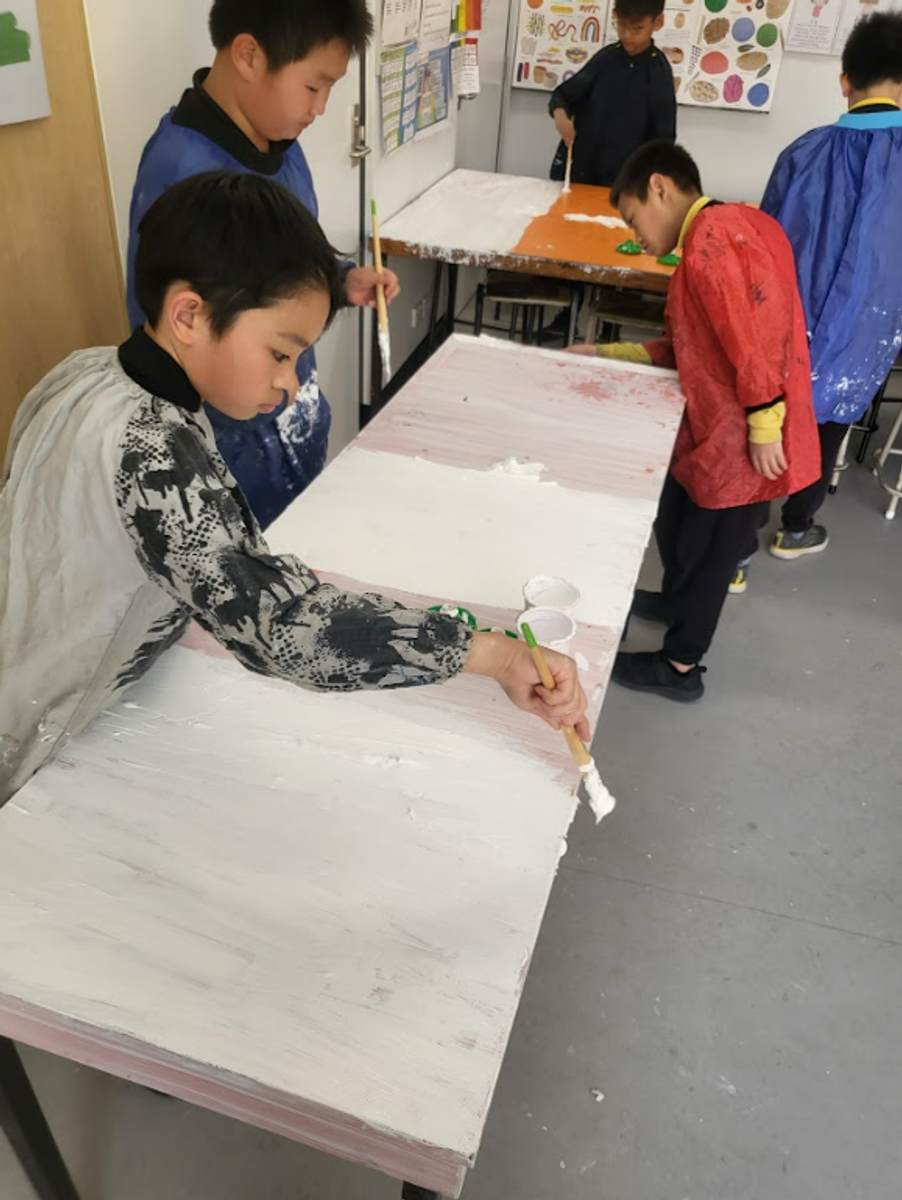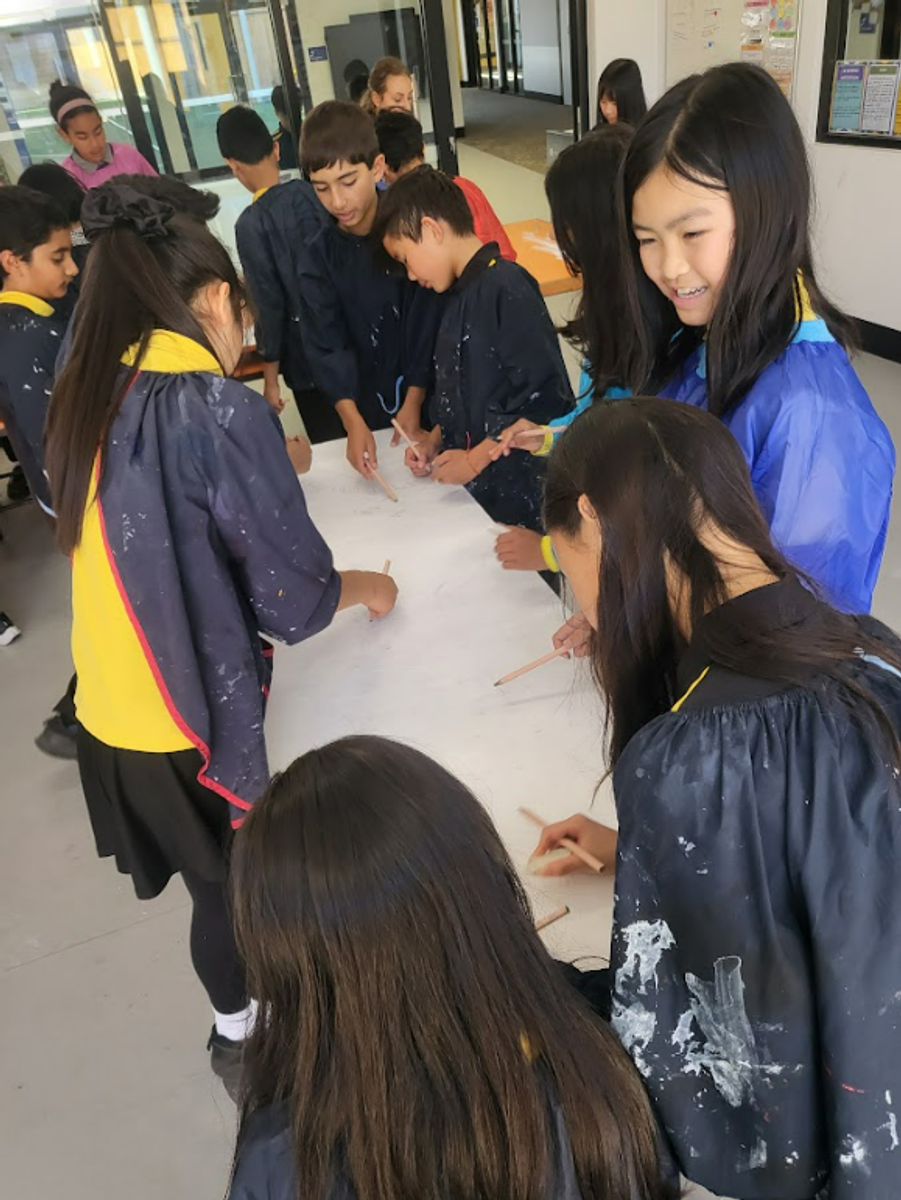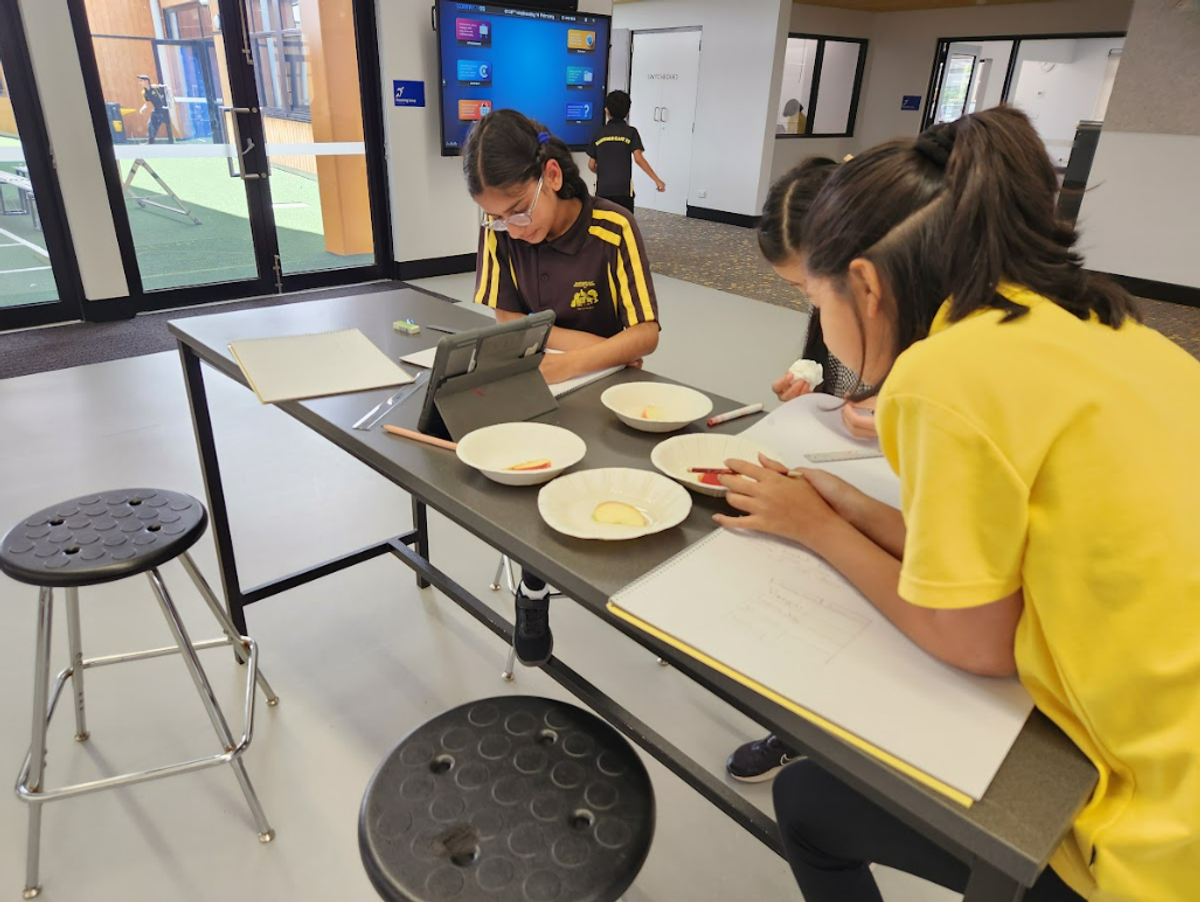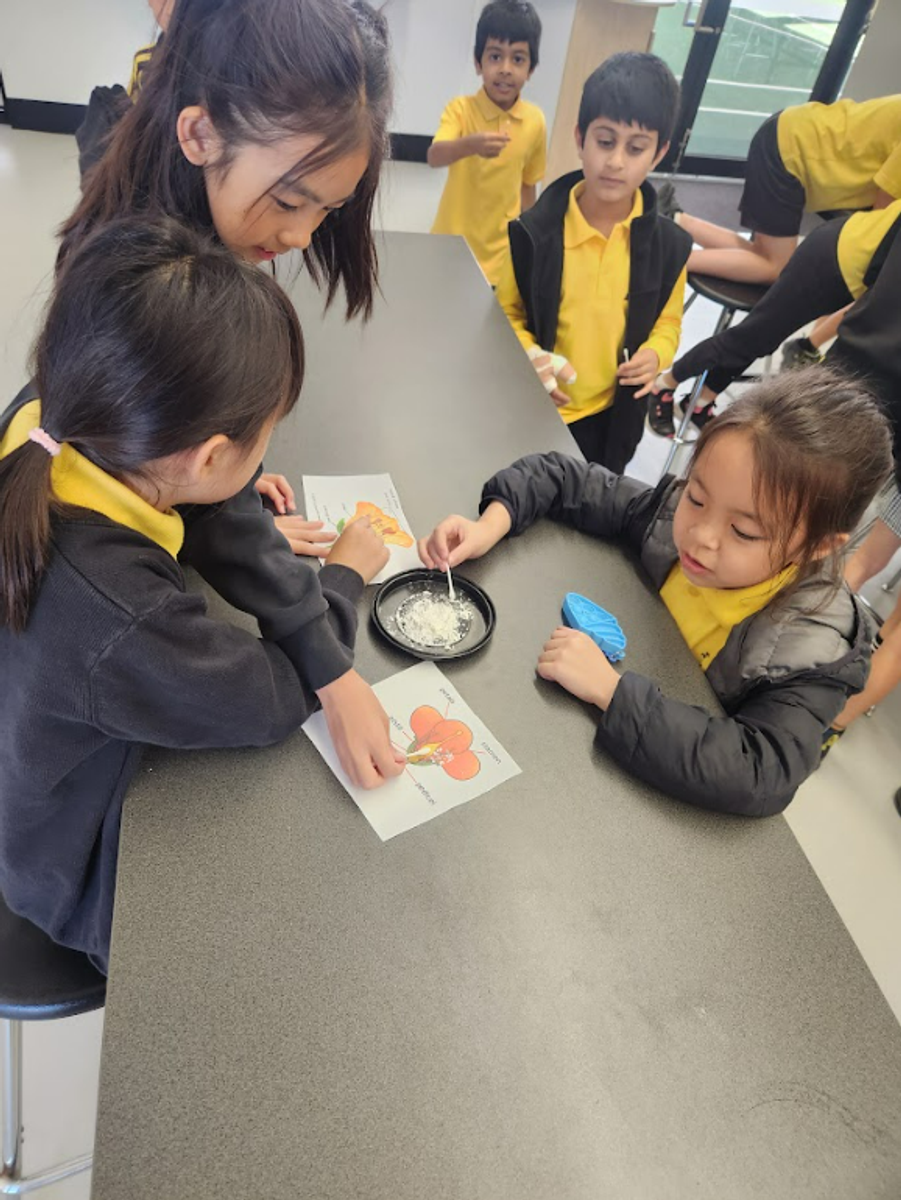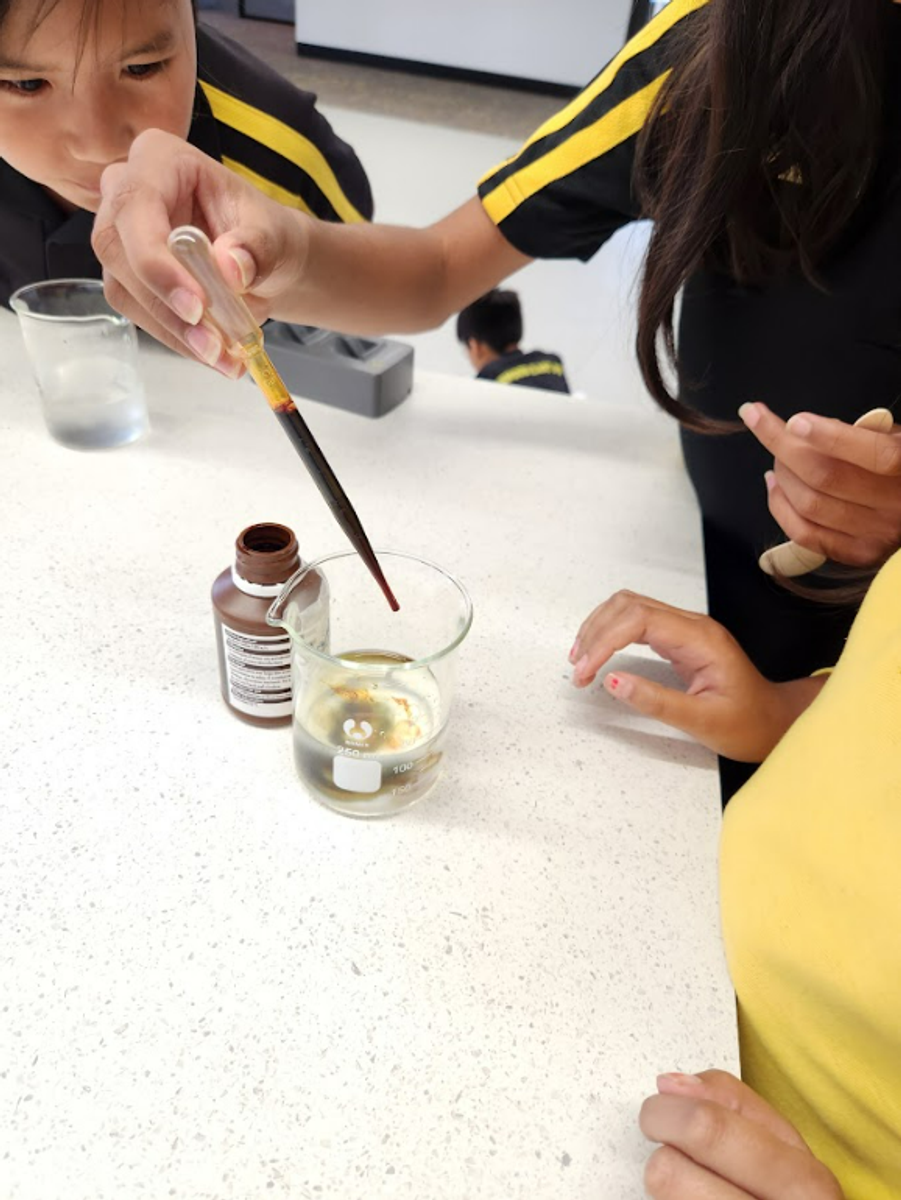
Literacy in Specialist Glossary
Literacy in Specialist Glossary
Students in all year levels have been expanding their vocabulary within STEM, PE, Mandarin and Visual Arts. Below are some of the technical vocabulary students now have an understanding of and are continuing to explore.
Hypothesis: a prediction or educated guess about what will happen in an experiment.
Observation: using your senses to describe what is happening.
Food Scientist: a scientist who studies the properties of food.
Agriculture Scientist: scientists who study farms and how to grow and harvest crops.
Harvest: to pick a crop.
Pollination: the process of pollen being transferred from one flower to another and fertilising the plant.
Oxidation: a chemical change that occurs when oxygen comes into contact with a substance. For example: an apple turning brown.
Iodine: an important micronutrient helps the growth of bones and metabolism.
Resource: encompass both natural and human-made resources essential for community well-being. Students can research topics such as access to clean water, food sources, energy sustainability, and infrastructure development.
Values: explore the cultural, social, and ethical principles that guide community interactions and decision-making. Students can investigate topics like inclusivity, diversity, respect, and empathy within the community.
Wellbeing: focus on physical, mental, and emotional health aspects within the community. Students can examine factors like healthcare accessibility, recreational facilities, mental health support services, and overall quality of life indicators.
Services: investigate the availability and effectiveness of essential services such as education, emergency response, public transportation, waste management, and community outreach programs. Students can explore how these services contribute to the overall well-being of community members.
Environment: study the natural surroundings and how they impact community health and sustainability. Topics can include biodiversity, air and water quality, green spaces, waste reduction initiatives, and efforts to combat climate change.
Teamwork: the collaborative effort of a group of people working together to achieve a common goal. It involves individuals sharing responsibilities, coordinating their actions, and supporting each other to accomplish tasks efficiently and effectively.
Fundamental movement skills: include essential movements like running, jumping, throwing, catching, dodging, and balancing. These skills form the foundation for more complex movements and are crucial for children to develop during their early years.
Technique: the specific skills, movements, and methods used by athletes to perform tasks effectively and efficiently within their sport.
Artistic: a person who has skills/likes the creative process.
Community art: art that is created and displayed in a public space.
Visual metaphor: an image that the viewer is meant to understand as a symbol for something else.

